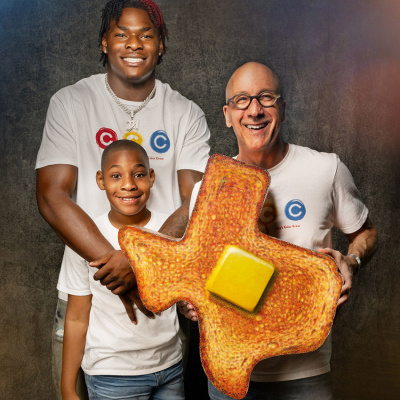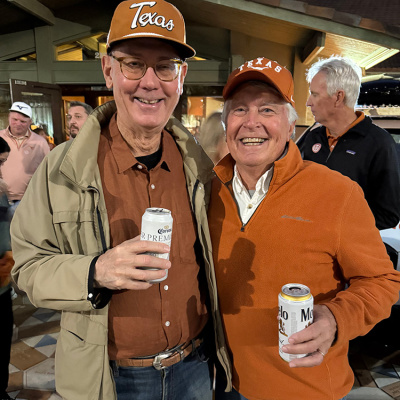'Bowlaway' Takes Readers Into the Mysterious Lives of a New England Family

As a Boston native now living in Texas, UT’s James A. Michener Chair in Fiction Elizabeth McCracken knew she wanted her next book to be a “very New England” novel. And, in her mind, there’s nothing more New England than candlepin bowling.
Bowlaway (out Feb. 5, 2019 from Ecco Press) spans across three generations of a New England family who own a candlepin bowling alley. In her first novel since 2001’s Niagra Falls All Over Again, McCracken takes us through a sprawling family saga with her signature lyrical prose and biting humor. The Alcalde chatted with McCracken about her latest work, her process, and what exactly candlepin bowling is.

This is your first novel in 18 years. Why the long gap?
You know, I wrote a lot that didn’t work out. In that same time, I got married, had kids, and moved around a lot, and I also wrote a couple of things I ended up putting in drawers.
Did Bowlaway come out of one of those drawers?
No, in fact, this book I wrote much faster than any other novel that I’ve ever written. It started [with] my grandfather. He was a genealogist. A huge number of the names in the book come from my grandfather’s genealogy. They were minor relatives or distant relatives, but the names sort of suggested characters. The first two names I had were Bertha Truitt and Dr. Leviticus Sprague.
Do you normally start with names when writing?
I’ve never done it before. I [normally] think of the people first and then I try to figure out what I would call them. [This time] it sort of felt like I knew the characters in a different way. I wouldn’t say more deeply, but I had an idea of them more quickly and then I started to write, and got to know them.
Considering they’re family names, did you have a different connection with them?
I think so. They’re mostly 19th century and early 20th century names, they were a bit different and so extremely suggestive. There’s a character in the book named Joe Ware, and I had written his name down, but I had gotten it wrong. In the early draft, his name was Jack Ware and when I realized I had gotten it wrong, his character became much clearer to me—like I was much happier with him once he had his right name.
OK...what is candlepin bowling?
There are sort of thin up and down pins, and small balls without holes that fit in the palm of your hand. I don’t feel this way about short stories, but for novels I like to have some sort of material to work with. I think of what there hasn’t been a novel written about, or something for the people to center around. Everybody in New England knows about candlepin bowling, and most New Englanders I know say quite snobbily, “oh you mean real bowling?” I grew up candlepin bowling. I was in the candlepin bowling league when I was a kid.
Do you think your teaching informs your writing—or vice versa?
It does. I strive as a teacher to be as generous as I can be to my students’ work, and to always think the best of it. I feel less didactic about writing the longer I teach, and I think that has to do with my response to every student’s writing being different. That’s actually freed me up quite a bit in my writing. I take bigger risks now in my writing than I used to. Some of my students just desperately want me to give them rules, and I always say, “I’m so sorry, there aren’t any.”
Even so, what do you find yourself saying to your students over and over?
I always bang on about remembering their characters’ bodies, that if you lose sight of your characters’ bodies you’ll lose sight of their souls. If you are only having a character who is thinking or feeling in a scene, it means they’re not actually reacting to what’s going on in the world of your fiction. And if the physical world can’t touch them, nothing interesting is going to happen. I also always talk about how ambition is the most important thing. Every year when I start my graduate fiction workshop, I tell them that the mantra of every writer should be, “I’m a genius with much to learn.” Which is to be full of hubris but also to not be rigid about what you think about writing in general, and your own work in particular.
Is humor something you consciously work into your writing?
Yes and no. Part of it is, any time I’ve ever written anything that I think is so sad and grim and there are no jokes in it, one of the first things anybody tells me is that they think it’s very funny. I feel pretty strongly that the way you write fiction is the way you process the world. If you’re deeply interested in personality, if that’s how you think about the way the world’s arranged, you’re going to be automatically more interested about character. And I think I just continually make jokes, even at the darkest time.
What do you hope readers will take away from Bowlaway?
Oh, heavens. I don’t know. That’s not my place to say. I tell my students nobody becomes a writer unless they’re a control freak, but that you need to be able to let go of that. I let go of that when I’ve finished something. Obviously I want people to like it, but that what a reader does with it is that reader’s business.
[This interview has been edited and condensed.]






